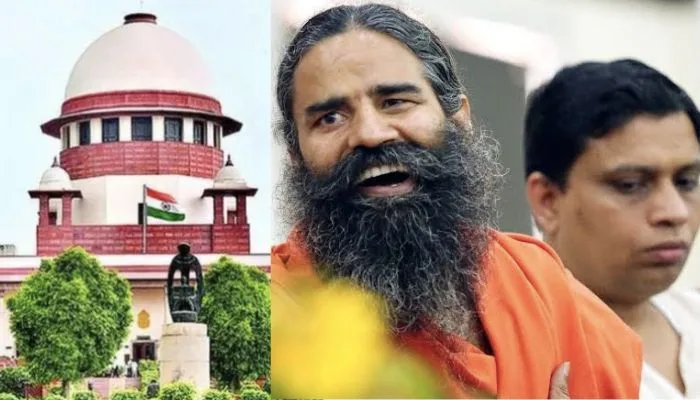
In a recent development, the Supreme Court has held Baba Ramdev, the promoter of Patanjali Ayurved, liable for contempt of court. This decision comes after a series of events related to misleading advertisements by the company during the Covid-19 outbreak.
Refusal of Exemption and Strong Remarks
On April 2, the Supreme Court refused to exempt Baba Ramdev and the managing director of Patanjali Ayurved, Acharya Balkrishna, from personal appearance in court. Despite their apologies for violating their undertaking on advertisements, the court deemed their actions as mere “lip service.”
History of ban on products of Patanjali
Patanjali, a prominent Ayurvedic brand, had in past come under fire for multiple issues related to its drug production and quality control measures. The Ayurveda and Unani Licensing Authority in Uttarakhand’s Dehradun in 2022 has directed Patanjali’s Divya Pharmacy to halt the production of five drugs, namely Madhugiri, Eyegrit, Thyrogrit, BPgrit, and Lipidom. Additionally, Patanjali has been instructed to immediately cease misleading advertisements. The ban was uplifted after the intervention of BJP govt at Centre to whom Baba Ramdev has close relations.
This is not the first time Patanjali has faced legal action. In August 2022, the Indian Medical Association (IMA) took legal action against Patanjali for an advertisement titled “Misconceptions spread by allopathy: Save yourself and the country from the misconceptions spread by pharma and medical industry.”
Concerns over the quality of Patanjali’s products have also been raised in the past. In 2017, Patanjali’s Divya Amla Juice, recommended for individuals with diabetes, and Shivlingi Beej were found to be of ‘substandard quality’ by the Ayurveda and Unani Office in Haridwar.
Moreover, Patanjali’s Divya Pharmacy faced blacklisting by Nepal’s drug regulator in December 2022 for failing to adhere to WHO’s drug manufacturing standards. Reports have highlighted issues with Patanjali’s quality control measures and the lack of robust clinical trial evidence.
Furthermore, Patanjali has faced criticism for its products failing quality control tests multiple times. Instances have been reported where Patanjali products were found to contain heavy metals and high levels of chemical concentration.
In response to these concerns, the Defence Ministry also took action in 2017 after a batch of Patanjali juice failed quality tests conducted at the West Bengal Public Health Laboratory in Kolkata. The sale of the particular batch was suspended, and a show cause notice was issued to Patanjali to address the deviations and provide explanations.
Concerns Over Government’s Response
The court also raised questions about the government’s response to Patanjali’s misleading advertisements during the Covid-19 pandemic. It pointed out that despite the critical nature of the situation, the government failed to adequately counter the advertisements, which claimed to cure diseases without sufficient evidence.
Implication of Drugs and License Department
In its order, the court impleaded the Drugs and License Department as a party to the case to understand the actions taken to counter Patanjali’s misleading advertisements. This decision underscores the importance of regulatory bodies in ensuring compliance with laws and regulations.
